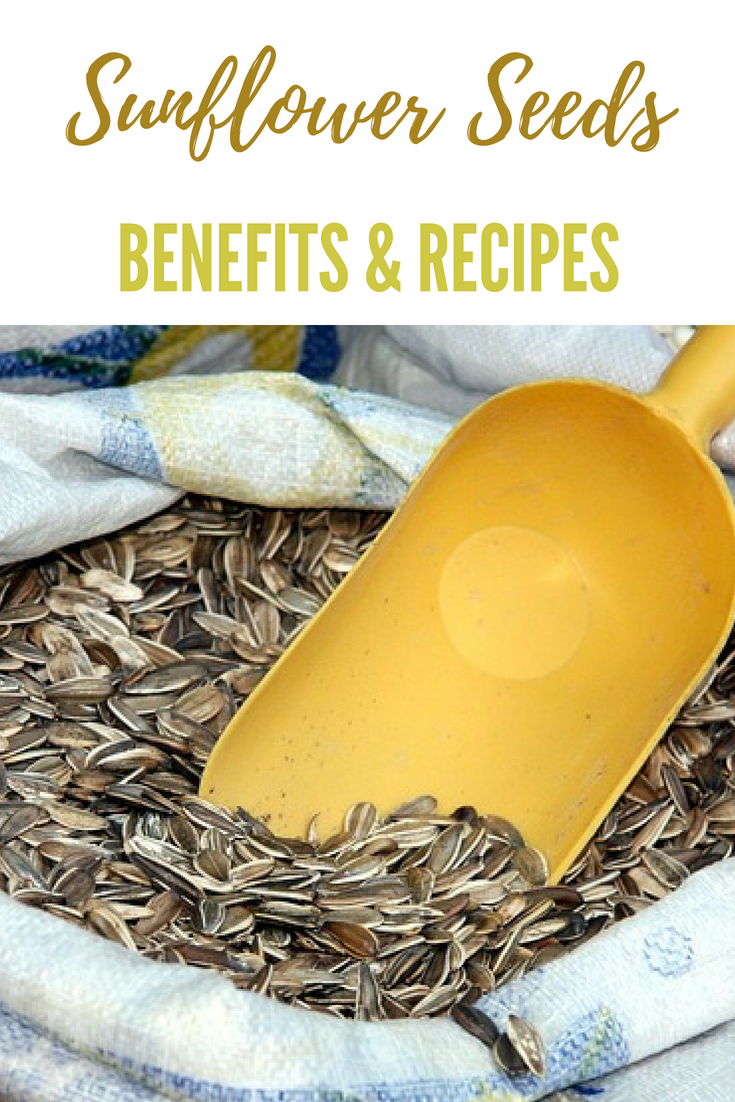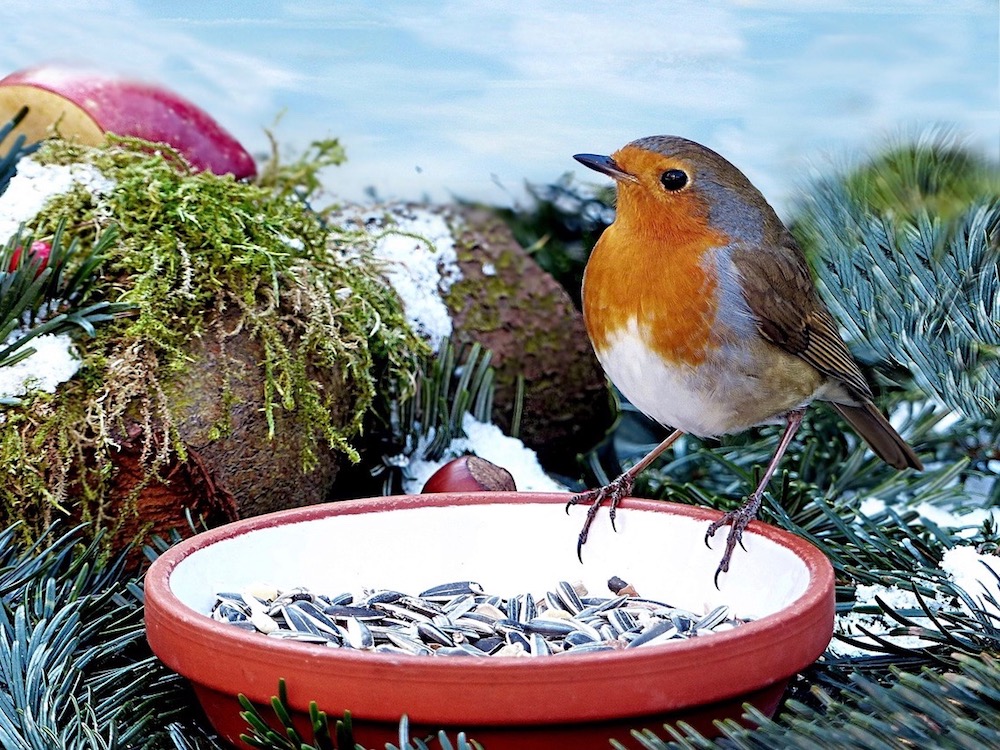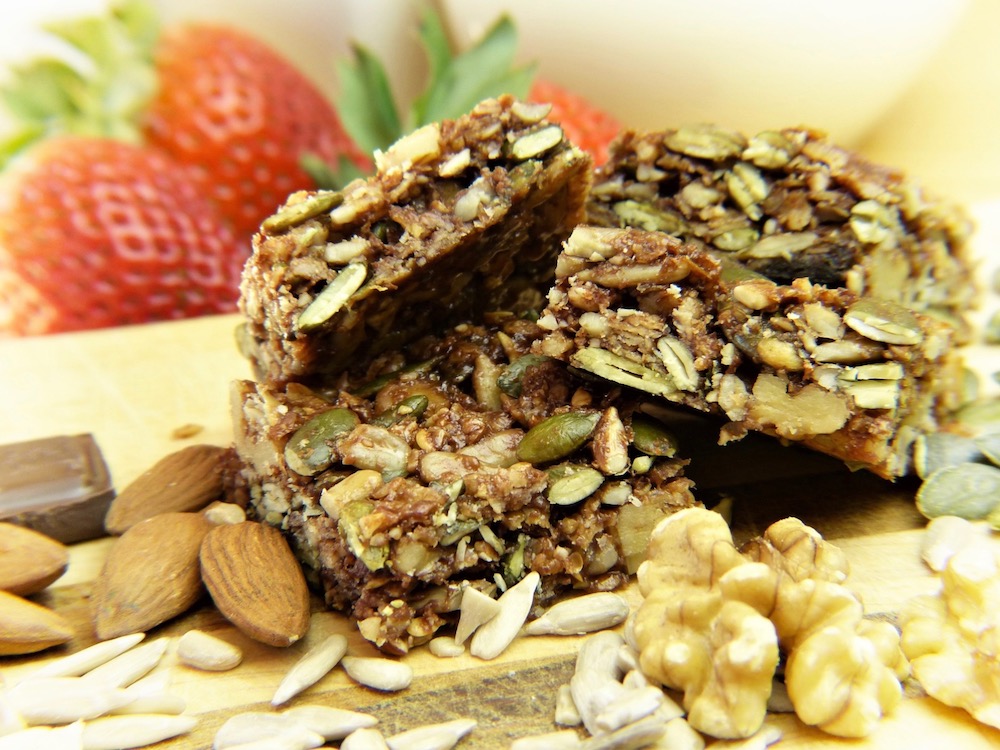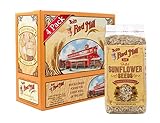
- Case of Four, 20 oz. bags (5 lbs. total)
- Vegan; Vegetarian; Paleo Friendly; High in Fiber; Kosher Pareve
- Raw
- NOW FOODS SUNFLOWER SEEDS RAW ORGANIC 16 OZ
When you think of sunflower seeds, your first inclination likely is to conjure up the image of a baseball player sitting in the dugout. He awaits his turn on deck. Out of boredom, he needs something to chew on.
He has heard all of the public advertising about how you should never use chewing tobacco, or “chawing baccy” as some in certain parts of the US might say.
He knows this is supposed to be a healthier substitute, but he is not sure why. He really just likes to give himself something to do, and the taste has grown on him.
Sunflower Seeds and Their Baseball Connection
If this even remotely falls in line with your mental image of sunflower seeds, there is a good reason for it. In the US, a brand of seed known as David Sunflower Seeds has sponsored Babe Ruth League baseball for many years.
As a result, you’ve seen little league players grow into major league players with a big league sunflower seed obsession.
Then, young players see the older players consuming them. Pretty soon you’ve got a self-perpetuating popularity. But as ingenious as that marketing plan is for David Sunflower Seeds — and as creative as they’ve gotten with their barbecue, nacho cheese, and various other flavors — none of it would be possible if the product’s quality suffered.
And when it comes to quality, David, or any other manufacturer of sunflower seeds, don’t have to do much. This popular snack food is popular not only for the natural taste, the creative flavors, and the activity they provide for your teeth and tongue.
They’re popular because they are extremely nutritious, and you can do much more with them than munch on them in between at-bats.
Many people mistakenly operate under the assumption this is an American food since it is tied to one of America’s favorite pastimes. But the reality is that most of the 41.4 million tonnes produced globally hail from areas like the Ukraine (10.1 tonnes) and Russia (8.5).
Now that we’ve gotten the preliminary info out of the way, let’s move onto the nutritional. In the following section, we’ll be talking about why these seeds need to be in your diet, particularly as a snack food. So put on your science hats. Let’s get into the components.
Sunflower Seeds Nutritional Value
Before getting into the distinct benefits of sunflower seeds, it is important to know what is actually in them. That will inform each of the dozens of benefits you’re likely to experience by moving them into the snack rotation. So without further ado, let’s crack open a shell, shall we?
Complete E
Most seeds are great for vitamins and minerals, but the sunflower variety is one of the best when it comes to being a complete vitamin E. By that, of course, we mean it has a comprehensive listing of the E variations, something that can’t be said of other snack foods.
Just to give you a clearer picture, one ounce contains 10 mg. That’s around 35% of your recommended daily intake (RDI). It’s one of the factors that assist with the formation of red blood cells and overall circulation.
Vitamin B
Vitamin B is another nutritional component found in sunflower seeds, particularly B1 (also known as thiamine). That same ounce that packs complete E will deliver around 0.4 mg of thiamine.
You’re only recommended to have around 1.1-1.2 mg per day, so three ounces will cover you. Thiamine assists with metabolism.
Fat and Calories
We’ve made fat into an ugly word. Let’s take a moment to change that. Like anything, fat can be bad for you. But if consumed in moderation and if you’re consuming the right types of fat, it has a net-positive health benefit to it.
Dietary fats have been known to help with everything from lowering blood cholesterol to staving off type 2 diabetes. Thankfully, sunflower seeds are rich in the types of fat (poly and monounsaturated) that you’re supposed to have.
The only potential drawback is that they’re somewhat high in calories. That same one-ounce serving mentioned above contains around 160. So be mindful of how many sunflower seeds you’re eating when you’re trying to lose or maintain weight.
Fiber and Protein
Fiber is what aids in healthy digestion and keeps you from feeling like you have to ransack the refrigerator every five minutes to get through the day. Seriously, if you find you’re having a lot of cravings, up your intake.
Protein also aids in muscle building. Sunflower seeds deliver both in significant quantities. A one-ounce serving boasts 6.5 grams of protein and 3 grams of fiber.
Copper
Copper isn’t just a tube you need for the back of your refrigerator. This mineral also features benefits for your hair and skin. Mother Nature figured you would need it, so she gave you healthier ways of getting it than going around chewing on wires all day. Sunflower seeds are some of the best carriers with one-ounce containing 512 micrograms, or over half of the 900 RDI.
Potassium
Bananas are not the only foods that can lay claim to being a healthy source of potassium. While they do pack more into their 100 calories than a one-ounce serving of sunflower seeds (412 mg vs. 113 mg), the seeds are still a healthy source.
Of course, the RDI is between 3,500 and 4,700 milligrams, so you’ll want to use a variety of sources to get the potassium you need. Getting it all through sunflower seeds would mean over-consuming on calories.
And while nine bananas a day wouldn’t lead to that problem, it would probably make you more acquainted with your bathroom than you’d prefer. Potassium has benefits to help prevent strokes and a variety of life-threatening or -altering disorders. It also helps enhance metabolism and strength.
Zinc
Zinc has a variety of health benefits that we’ll get into in the benefits section. For now, all you need to know is that a one-ounce serving of sunflower seeds has roughly 1 mg of it. The RDI is around 11mg, making sunflower seeds a formidable source, especially as a snack.
Other Nutritional Components
Some other nutritional components that will support these benefits include manganese, selenium, phosphorus, magnesium, and folate.
Now that we’ve covered that, we’ll be moving into the specific payback that incorporating these into the snack rotation will provide in terms of real health benefits.

Birds aren’t the only ones who can feel the benefits of sunflower seeds.
Feeling the Benefit of Sunflower Seeds
In the last section, we dove into many of the 14 key nutritional components that sunflower seeds deliver. For the section to follow, we’ll dig a little deeper to see the real-world results that come from each of these.
You’ll find that for each component, there are several more health functions that are supported.
Let’s start by focusing on the biggest.
Support for Heart Health
Heart disease and heart attacks are two of the most common killers in the world. Some of the elements that can lead to the development of these include high cholesterol, high blood pressure, and full-scale artery blockage.
Fortunately, sunflower seeds feature a few components that help address these issues directly. Potassium balances the effects of sodium, which can in turn lower blood pressure and eliminate the risk of hypertension.
Relaxing of Nerves and Other Body Tensions
Magnesium in sunflower seeds prevents the agitation of nerve cells from calcium interference. This relaxes blood vessels, muscles, and nerves actually.
The effects of this can manifest in many (related) beneficial ways, such as eliminating or reducing migraine headaches and soreness. It also can ease muscle tensions and fatigue.
Digestion Support
The fiber content of sunflower seeds aid digestive support. With the average man needing between 25-30 grams of fiber for proper function per day and the average woman requiring around 21, sunflower seeds make a great functional snack.
Remember: just one ounce delivers three grams. This makes for a superior alternative to sugary snacks that give you empty calories and no nutritional value between meals.
That means you have to rely on meals to do more, and if you’re consuming a lot of sugar, it’s unlikely that you’re eating the right things at lunch and dinner.
Support Against Cancer
According to Cancer.gov, new cases of cancer reported each year are 439.2 per 100,000 men and women (based on 2011–2015 cases) and the number of cancer deaths is 163.5 per 100,000 men and women per year (based on 2011–2015 deaths).
No one really knows every cause of cancer, and some are more aggressive than others, but we do know that things like vitamin E, selenium, and copper have antioxidant properties. Antioxidants are helpful in the fight against cancer and limiting the risk factors.
They also help prevent the damage caused by free radicals, which do consistently factor in to cancer cases, while promoting healthy cell formation.
Sunflower seeds, as we’ve pointed out, have an abundant supply of those vitamins and minerals. So while they may not prevent cancer, they give you the building blocks needed to stay out of the high-risk zone.
Improving or Maintaining Bone Health
According to the Mayo Clinic, two of the best things you can do to strengthen and promote bone health are to increase the amount of calcium you have in your diet and avoid tobacco and alcohol use.
Tobacco and alcohol are bone offenders because they interfere with the amount of calcium that gets through to your bones.
Sunflower seeds as a substitute for tobacco use, whether on the baseball/softball field or anywhere else, can promote healthier habits in other areas as well.
And yes, sunflower seeds do contain about 109 mg of calcium per cup, which is way under the RDI of 1,000-1,300. But as a snack, that makes for a respectable amount, and every little bit helps.
Mental Health Support
Ever hear of tryptophan? We’re willing to bet you have, and we’re further willing to bet that you associate it with Thanksgiving, turkey, and naps. But did you know there are benefits that go beyond this?
Tryptophan, present in sunflower seeds, actually has properties to support mental health.
Tryptophan is an essential amino acid. It helps in the production of serotonin. Serotonin is what is known as a neurotransmitter. Release of serotonin into the body produces a calming effect on the brain, and it aids in your ability to relax.
Reducing Inflammation
Researcher Philip Hunter writes in EMBO Reports that “Inflammation has long been a well-known symptom of many infectious diseases, but molecular and epidemiological research increasingly suggests that it is also intimately linked with a broad range of non-infectious diseases, perhaps even all of them.”
Now let’s go back to vitamin E, selenium, and copper and their antioxidant properties for a moment. Antioxidants are the best source we have to reduce inflammation. They also aid the body in fighting infection, particularly in kids.
Just make sure when going the sunflower seed route that your children are old enough to safely eat them without the seed becoming a choking hazard.
Other issues related to inflammation that these seeds can help with:
- Arthritis
- Asthma
- Allergies
While you should be seeking antioxidants out in meals, they’re also good to incorporate during snack time. Sunflower seeds possess all three of the aforementioned vitamins and minerals, making them a perfect inclusion to your daily dietary needs.
Greater Immune Support
No one can avoid sickness altogether. Anyone who has children or works around them are fully aware of the pathogens those little tykes can carry and transmit to others.
But even if you are never around children, the world is a pretty dirty place and not if but when you get sick, you need to be able to count on your immune system for support.
Some of this will come from the type and frequency of exercise you perform. However, diet is a big factor as well. Consuming foods that are high in zinc help to support your immune system’s performance. Anyone care to venture what Z-word sunflower seeds have in them?
Cold Relief
There may be no cure for the common cold, but that doesn’t mean you have to sit idly by and do nothing while there are things that can help stave off the symptoms. Your first reaction could be to buy Mucinex.
It has what the medicinal community calls “expectorant” properties, which help to clear air passages. While effective, medications like this force your liver to work a little harder than it should.
Why go that route when you can get the same effects by eating sunflower seeds? In addition to chest congestion, these seeds can help with lowering fever. Most of this benefit is owed to the high magnesium content.
Vision Protection
Individuals whose eyes are sensitive to light or who have inherited vision problems from their parents become more susceptible to cataracts the older they get.
Most of you have heard that term before, but in case you don’t have a lot of experience dealing with them, a cataract essentially is a clouding of the eye lens.
It’s possible to live with this for many years, but it’s also annoying. And cataracts that advance quickly require immediate surgery or they could lead to permanent visual distortions and even more severe vision problems.
To help protect your eyes from this problem, it’s recommended that you consume more vitamin C and E and other antioxidants. As previously mentioned, sunflower seeds are a complete vitamin E, so they provide a lot of visual support.
Beauty and Anti-Aging Benefits
One of the unsung benefits of sunflower seeds and oils is what they do for beauty and anti-aging. While the “oils” part of that equation may send students preparing for prom running from sunflower seeds, the reality is this seed’s antioxidant properties that we’ve already discussed at length are helpful in reducing inflammation.
In fact, zinc — a key ingredient — is found in most over-the-counter acne products. Since you can’t really overdose on zinc, there’s nothing to stop you from trying both.
Additionally, sunflower seeds are used in many moisturizer products to help users attain that healthy look of glowing skin.
Likewise, sunflower oils are used in many hair care products to help stimulate growth and moisturize the root. They also can prevent the premature graying of hair. (Probably not a concern to the prom goer at this point, but give it time, ladies and gents.)

Sunflower seeds can be used creatively in a variety of recipes.
Great Taste and Recipes
Finally, we deal with our favorite part of any food. Actually eating it! In this section, we’ll explore how you can get creative with your sunflower seed consumption, both from the bag and in the kitchen.
For us, it all starts with salt. Good ol’ NaCl. Sodium chloride.
Salt has been a staple of the dinner table for many years, and there’s a pretty good reason for that. It tastes great and helps to enhance the natural flavors of other foods.
But if salt is a little too boring for you, there are a variety of styles that you can now get to change up the flavor. Just going from the currently active list of David Sunflower Seeds (and no, this is not an endorsement for one particular brand, lots of companies are getting creative with their flavors and you should try them all):
- Original
- Bar-B-Q
- Ranch
- Nacho Cheese
- Jalepeño Hot Salsa
- Original with Reduced Sodium
- Dill Pickle
- Hot and Spicy
- Buffalo Style Ranch
- Cracked Pepper
- Sweet & Salty
- Sweet & Spicy
- Lightly Salted
- Black Pepper
- Sour Cream & Onion
- Sizzling Bacon
The point: forget everything you thought you knew about the taste of sunflower seeds. We live in an age when they’re a lot more exciting than they used to be.
Recipes
If the idea of cracking open and discarding hulls isn’t something that appeals to you, then you might want to consider an alternate use of sunflower seeds — at the dinner table.
White Chocolate Matcha Protein Bars
If you’re like us, you like to have a little more control over the added sugars that are found in a typical over-the-counter protein bar. Kelly Fielding delivers an adequate replacement with her White Chocolate Matcha Protein Bars, which sound as delicious as they taste.
Believe us, we’ve tried them. If you want to try them for yourself, here’s what you’ll need:
- 3/4 cup cacao butter
- 1/4 cup coconut oil
- 1/2 cup cashews soaked overnight
- A good pinch of Himalayan sea salt
- 1/2 cup coconut nectar
- 1 tablespoon Matcha Powder
- 1 teaspoon of freshly grated ginger
- 1 teaspoon of freshly grated orange zest
- 1 cup raw oats
- 1 cup raw shredded coconut
- 1 cup raw flaked almonds
- 1 cup raw sunflower seeds
Check out Kelly’s prep instructions here.
Sunflower Seed-Encrusted Lamb Loin
For this one, we’ve got the National Sunflower Association to thank. You’ll need two whole boneless lamb sirloins, fine sea salt, freshly ground black pepper, Herbs de Provence, one beaten egg white, one cup of finely chopped sunflower seeds, one tablespoon of flour, two tablespoons of olive oil, balsamic vinegar, and dried lavender flowers. Check out the rest of the prep instructions at this link.
Sunflower Cheese Balls
Who can resist a good cheese ball? No one who’s ever attended an office potluck, that’s for sure! For this one, you’ll need four ounces of Muenster cheese at room temp, four ounces of cream cheese (also room temp), and the following:
- 1/2 teaspoon Worcestershire sauce
- 1/4 teaspoon paprika
- 1/8 teaspoon red pepper
- 2/3 cup roasted, salted sunflower kernels
Here’s how you put it all together.
Sunflower Garden Omelet
Once again, thanks go to the NSA for this great way to wake up. The first thing you need to do is pick up the following:
- 4 large eggs
- 2 egg whites
- 1/4 teaspoon salt
- 1 teaspoon sunflower oil
- 2 tablespoons raw sunflower seed kernels
- 1/4 cup red onion, thinly sliced
- 1/4 cup (about 2 large) mushrooms, thinly sliced
- 1/4 cup baby spinach leaves
- 1/4 cup (1/2 medium) tomato, sliced
- 3 tablespoons minced fresh basil or mint
- 2-3 tablespoons grated Parmesan cheese
You can check out the prep on this one here.
In Closing
Now that you see just how beneficial and versatile these seeds can be, we hope you’ll find creative ways to implement them into your diet. If you do, share your tips in the comments section. We’d love to know what you’re doing with them.
No products found.
No products found.


Leave a Reply